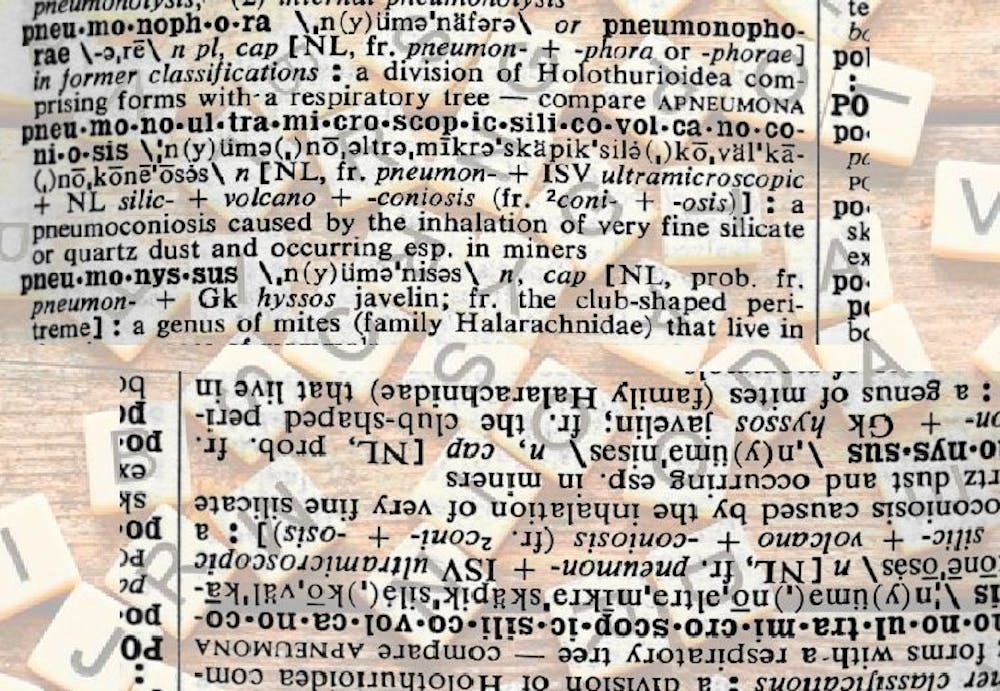Simplicity is hard.
From a very young age, we are taught the value of grammatical complexity. The importance of varied syntax. The necessity of a rich vocabulary. In our foreign language classes, we trudge through the echelons of conjugations and tenses. Each new grammatical rule we learn is ticked off on a mental to–do list, an imaginative accolade for knowledge that translates into a higher number on our transcript. In high school, I spent hours in frigid classrooms modified for the sake of exam season, lined with rows of plastic indigo chairs and desks that quivered under the weight of A4 pages. Perched on the precipice of my seat, I underlined every verb I used in my French writing exam. I knew the quantitative value of my words by heart. Two points for imparfait, three for futur–parfait. I spared my teacher the indignity of having to scour my paper for advanced vocabulary, highlighting the words so they stood out.
In the language that comes to me most easily, the process is no different. My grasp of English, my truest mother tongue—though ironically, it’s my colonial forefathers I have to thank for it—is predicated almost entirely on an understanding that complexity reigns supreme.
I would describe my prose as a very, very poor man's James Joyce. All the befuddlement of a stream of consciousness narration with absolutely none of the literary value. Every time I read a book, I make a note of the words I don’t know. The well–rounded words, longer than two syllables, the ones that provoke raised eyebrows when you slide them into daily conversation. Brobdingnagian. Concomitant. Phantasmagorical. For a month straight, I used the word “diatribe” in every other sentence because I liked the way it rolled off my tongue.
Suppose I were to commit a crime and take it upon myself to leave a note at the scene of the offense. A linguistic analyst would have no trouble finding the culprit: A cursory scan of every article with my name in the byline would reveal obvious patterns. The persistent use of the word “ubiquitous,” jammed into phrases that seem created solely for the purpose of using that word. Adage. Prosaic. Analogous. My sentences are jagged, a mess of sharp edges and jumbled commas. I have trouble taking ownership or claiming them. Everything is written in the passive voice.
I don’t know how to avoid the formulaic. The formula was created for a reason, I think; it’s etched into everything I write with an odd kind of permanence. My former English teacher used to refer to it as PEAS: point, evidence, analysis, so what? Make your point, throw a quote in, list the stylistic devices, and explain why it matters. There’s no room for anything else on my plate. It’s stifled by all the PEAS.
I used to get angry when I was called out on it. My Street editor’s suggestions became a battleground as I defended every dispensable word I used in the Google Docs comment section. I went to war over “egregious” and “banal,” advocating for every comma in my lengthy sentences. For me, the combat was personal. It wasn’t just an attack on my writing style, but the perception I attached to it. I wanted to sound smart in the only way I knew how. Finally, my editor sat me down and explained it to me the only way I would understand.
“Nobody understands what you mean.”
Somewhere along the way, I had decided that the appearance of words was worth more than their definition.
But as it turns out, Nietzsche was right. Confronting your crisis of faith is the only way to transcend it.
“Transcend” is a word I use liberally because I’m still working on it. Things can’t be unlearned overnight. But I’m working on it, working on untangling my lexicon and smoothing out the didactic knots. Working towards believing that the easiest way of saying things is often the best.

